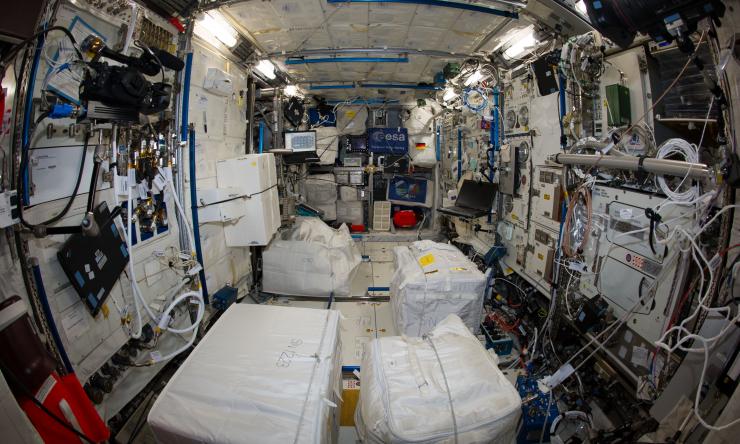Space health initiatives to host spacecraft design workshop
The Translational Research Institute for Space Health at Baylor College of Medicine, or TRISH, will join the Massachusetts Institute of Technology Media Space Lab Exploration Initiative to host a workshop addressing the issue of how interior spacecraft environments can be enhanced to improve human health and performance.
The two-day seminar, “Spaces in Space: Optimizing Behavioral Health and Cognitive Performance in Confined Environments,” seeks to highlight opportunities to improve the well-being of astronauts and enhance their cognitive performance by rethinking their personal environments for deep space missions.
It will be held Feb. 6, 1 – 6 p.m., and Feb. 7, 8 a.m. – 1 p.m., on the MIT campus and also will be available via livestream. Academic researchers from the fields of psychology, neuroscience, ecology and artificial intelligence, along with leading engineers, behavioral healthcare industry innovators, interior designers, architects and entrepreneurs developing new technologies all are encouraged to attend.
“Imagine being in a small space for 30 months, not able to go outside, open a window or have seasonal changes. Privacy will be an issue. We are exploring how to customize and enrich indoor spaces to keep our space explorers happy and healthy,” said Dr. Dorit Donoviel, director of TRISH, who will lead a discussion at the workshop about the importance of spaces in space health. “We know the design of interior spaces can hold the potential to affect mood but also cognitive performance. Finding those ingredients that can positively impact both is a great challenge and opportunity with contributions possible and necessary from many disciplines.”
Topics will include the potential to make periods of confinement more tolerable for astronauts through increased or reduced sensory stimulation – for example, whether video wall coverings or certain sounds or smells reduce depression and improve memory and the psychological benefits of enabling space travelers to grow their own plants. Experts also will analyze how interior space might be designed to serve a dual purpose of improving behavioral health and shuttle functionality.
In addition to Donoviel, other speakers include Dr. Dava J. Newman, former deputy administrator of NASA, the Apollo Program Professor of Aeronautics and Astronautics and Engineering Systems at MIT. She will discuss crew environments, performance and health. Pulitzer Prize-winning Harvard socio-biologist Dr. Edward O. Wilson will give a talk on human environment and health, titled ‘Biophilia: Our Greater Biology.”
The workshop is free but seating is limited.
Led by Baylor College of Medicine's Center for Space Medicine, TRISH is a consortium with the California Institute for Technology and the Massachusetts Institute for Technology. Partnering with NASA through a cooperative agreement, TRISH funds high-risk, high-reward, transformative human health technologies and performance solutions to predict, protect, and preserve astronaut physical and mental wellness during deep space exploration missions.
Learn more about the Translational Research Institute for Space Health.










